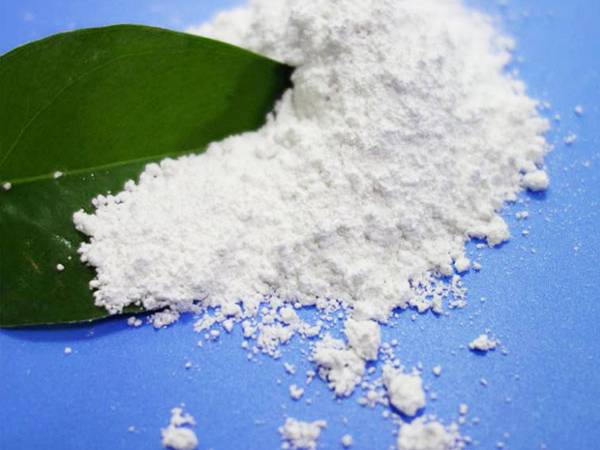



barium sulphate solubility in water
Understanding the Solubility of Barium Sulfate in Water
Barium sulfate, a chemical compound with the formula BaSO₄, is known for its high density and low solubility in water. This characteristic makes it an important substance in various industrial and medical applications, particularly in radiology for imaging studies. Understanding the factors that affect the solubility of barium sulfate in water can provide valuable insights into both its practical applications and its behavior in environmental systems.
Chemical Properties of Barium Sulfate
Barium sulfate is an inorganic salt comprised of barium (Ba²⁺) ions and sulfate (SO₄²⁻) ions. The compound is white, crystalline, and odorless, with an empirical formula of BaSO₄. In pure water, its solubility is extraordinarily low, measured at about 0.000244 g per 100 mL at room temperature (25°C). This implies that at standard conditions, barium sulfate does not significantly dissolve in water, making it essentially insoluble for practical purposes.
Reasons for Low Solubility
The low solubility of barium sulfate can be attributed to several factors. First, the strong ionic bonds between barium and sulfate ions require significant energy to break apart. When mixed with water, the compound doesn't dissociate effectively due to the highly stable lattice structure of the BaSO₄ crystals. Additionally, there are limited interactions between the Ba²⁺ and SO₄²⁻ ions and water molecules, which further inhibits solubility.
Another aspect contributing to low solubility is the relatively high standard Gibbs free energy of the dissolution process of BaSO₄. This means that the dissolved state is thermodynamically unfavorable compared to the solid state. In simpler terms, the energy required to disrupt the solid structure and separate the ions in solution exceeds the energy that could be gained from the surrounding water molecules.
Factors Influencing Solubility
Although barium sulfate is largely insoluble in water, certain factors can influence its solubility. Temperature is a primary factor; for many salts, increasing temperature generally increases solubility. However, it is noteworthy that barium sulfate’s solubility changes only marginally with increasing temperature, indicating its unique stability under varying thermal conditions.
barium sulphate solubility in water

The presence of other ions can also affect the solubility of barium sulfate through a phenomenon known as the common ion effect. When a solution contains sulfate ions from another source, the solubility of BaSO₄ decreases further due to Le Chatelier’s principle, which states that adding more of a product (in this case, sulfate ions) will push the equilibrium to favor the formation of more solid barium sulfate, thereby reducing solubility.
Applications of Barium Sulfate
Barium sulfate's low solubility is strategically leveraged in several fields. In medical imaging, particularly in X-rays, barium sulfate is used as a contrast agent to enhance the visibility of the gastrointestinal tract. Since it does not dissolve easily, barium sulfate remains in the intestines, allowing physicians to see clearer images during radiographic examinations.
Barium sulfate also finds applications in the oil and gas industry, where it is employed as a drilling fluid additive. Its high density helps control wellbore pressure and prevents blowouts, highlighting its critical role in resource extraction.
In addition, it is used as a pigment in paints and coatings due to its bright white color and opacity. Moreover, it serves in plastics and rubber products to improve durability and strength.
Environmental Considerations
While barium sulfate is generally considered to pose minimal environmental risk due to its low solubility, it is crucial to handle it carefully in industrial applications. Any potential release of barium or sulfate ions into aquatic systems could have harmful effects on local ecosystems. Regulatory measures and guidelines are in place to monitor and manage the safe use and disposal of barium-containing compounds.
Conclusion
In conclusion, barium sulfate is a remarkable compound characterized by its low solubility in water, stemming from its strong ionic bonds and stable crystal structure. This unique property renders it invaluable in medical, industrial, and environmental contexts. Understanding its solubility behavior not only informs its applications but also emphasizes the importance of responsible handling in various environments. By navigating its properties wisely, we can harness its benefits while mitigating any potential risks.
-
How and Why to Disinfect Water Softeners for Safe, Reliable WaterNewsNov.24,2025
-
Effective Deionized Water Disinfectant Solutions for Healthcare & Industrial UseNewsNov.24,2025
-
Commonly Used Disinfectant for Drinking Water – Global Uses & InnovationsNewsNov.23,2025
-
Chemical to Disinfect Water – Essential Solutions for Safe, Clean Drinking WaterNewsNov.23,2025
-
Blue Water Disinfectant: Safeguarding Global Water Quality with InnovationNewsNov.22,2025
-
Bleaching Powder for Water Disinfection – Affordable & Effective Water Treatment SolutionNewsNov.22,2025
-
Bleaching Powder Drinking Water: Effective, Affordable Disinfection WorldwideNewsNov.21,2025










